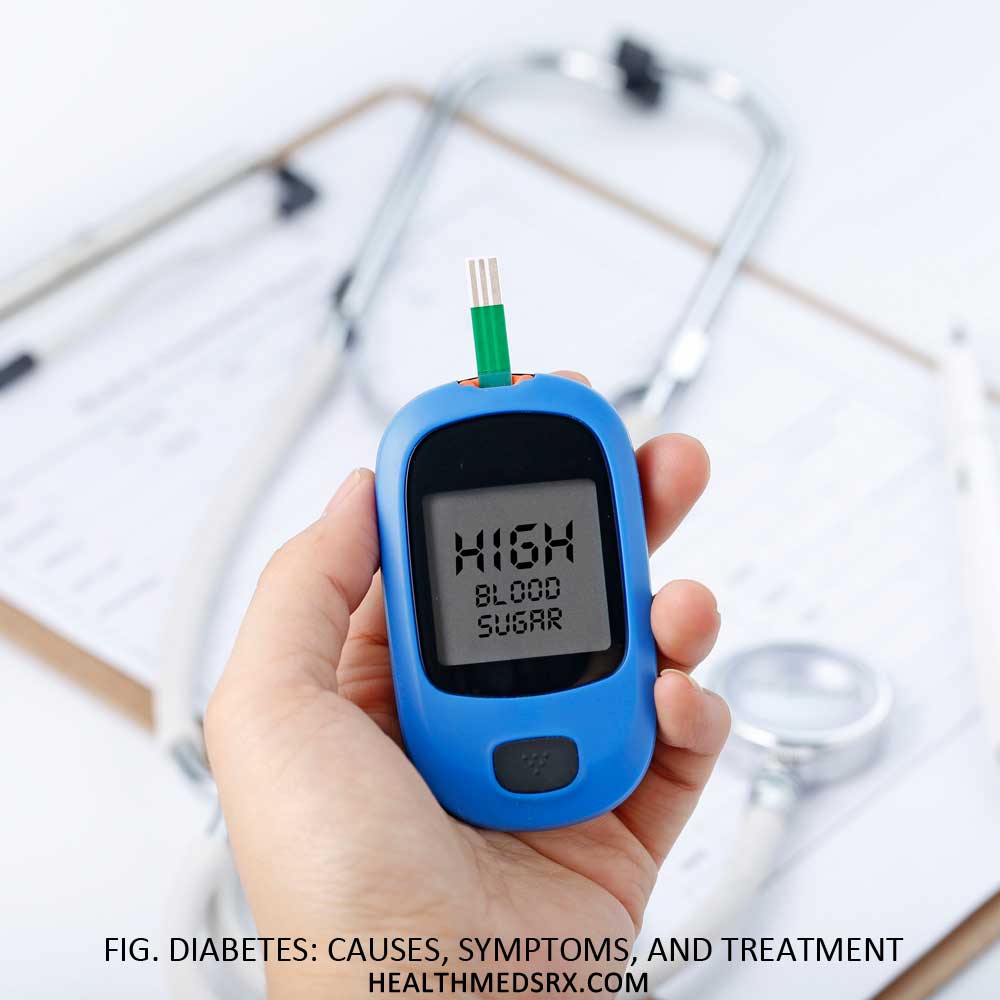Diabetes is a long-term health condition that impairs the body’s ability to regulate blood sugar levels. Insulin deficiency occurs when the pancreas produces insufficient insulin or when the body cannot use it properly. If diabetes is not treated on time, it can lead to many serious health problems like heart disease, eye complications, stroke and kidney failure, infections, etc. As such, it has become one of the leading causes of death worldwide. It is imperative to address the growing threat of diabetes with a strong focus on prevention and management. Numerous countries have implemented initiatives to enhance awareness and promote early detection and treatment for those affected.
Causes and Risk Factors of Diabetes:
The causes and risk factors of diabetes are complex and not fully understood. Genetic or hereditary factors can influence diabetes. Having a family history of the condition significantly increases the chances of developing it. Similarly, an unhealthy diet and lack of exercise can increase the risk of diabetes due to lifestyle choices. Other environmental factors such as age, gender, and race can also influence the likelihood that an individual will develop diabetes; for example, men over 45 are at greater risk than women, while African Americans tend to experience higher rates of this disease than other racial groups.
Certain medical conditions can certainly contribute to the development of Type 2 diabetes, in addition to specific demographic characteristics. These include polycystic ovarian syndrome (PCOS), Cushing’s syndrome, Glucose Intolerance, and Pancreatic Insufficiency among others.
It is clear from research that many factors can contribute to a person’s risk of developing diabetes. By gaining a deeper understanding of these factors, we can better identify those at the highest risk and take action early on to prevent the development of additional health complications that may arise from uncontrolled blood sugar levels or inadequate management strategies later in life.
Symptoms of Diabetes:
- People with diabetes often experience excessive thirst, and fatigue and need to urinate frequently.
- Tingling around the legs or lower legs – as well as the hands and feet.
- Even after eating, they are constantly hungry because their cells are not getting the energy they need from food.
- Elevated blood sugar levels affect the shape of the eye’s lens, causing temporary vision changes.
- High blood sugar levels can weaken the immune system, making individuals more susceptible to infections, especially urinary tract and skin infections.
- Individuals with diabetes may experience skin problems including itching, dry skin and dark spots (acanthosis nigricans).
- Yeast infections, such as vaginal yeast infections in women, may be more common in those with diabetes.
- Diabetes can increase the risk of gum disease and related dental problems.
The Different Types of Diabetes:
- Type 1 Diabetes: It is an auto-immune condition that occurs when the body’s immune system mistakenly attacks and destroys the cells in the pancreas that produce insulin. This form of diabetes usually develops during childhood or adolescence, but it can also occur later on in life; those affected by this type must take insulin injections every day for survival.
- Type 2 diabetes: It is the most common type of diabetes, accounting for about 90% of all cases worldwide. This type is usually caused by poor lifestyle such as being overweight or obese, having an unhealthy diet, and lack of physical activity. Type 2 can be managed through changes in a person’s diet and exercise routine, although some patients should consult a doctor if their symptoms do not improve with lifestyle changes alone.
- Gestational diabetes: A woman’s body undergoes many hormonal changes during pregnancy, so women are more likely to develop gestational diabetes, which causes a temporary change in blood glucose levels. However, the condition usually resolves itself after delivery without any complications arising from the condition. Women who develop gestational diabetes are at increased risk of later developing type 2 diabetes if they do not maintain healthy habits related to weight management and physical activity after giving birth.
Treatment Options for Managing Diabetes:
- Lifestyle changes are important factors in managing diabetes.
- Eating a balanced diet low in carbohydrates and saturated fats helps control blood sugar levels and reduces the risk of serious complications.
- Diets should be high in fiber-rich foods such as fruits, vegetables, legumes, and whole grains because they can support healthy glucose levels by slowing digestion and absorption.
- Maintaining a regular exercise schedule is also crucial for diabetes management.
- Individuals with diabetes should keep regular appointments with their healthcare provider to stay informed of any new growth related to their treatment plan or the progress of the diagnosis.
- Avoiding smoking or heavy drinking and reducing stress is important for managing diabetes as it can cause blood sugar to rise. Read more tips on ways to prevent heart attack to know more on effective management of heart problems.
A Guide to Healthy Eating with Diabetes:
Give priority to complete, unprocessed foods such as vegetables, fruits, whole grains, and lean meats. These offer fiber and vital minerals that support blood sugar stabilization.
Blood sugar is most significantly impacted by carbohydrates. Keep an eye on how many carbohydrates you consume, and opt for complex ones like those found in whole grains, legumes, and veggies.
Incorporate lean protein sources like beans, fish, poultry, and tofu into your meals. Protein supports the maintenance of muscle mass and appetite management.
Consume fats that are good for you, such as those found in avocados, nuts, seeds, and olive oil.
Aim for regular meal and snack times to help keep blood sugar levels stable and avoid extreme highs and lows.
Check your blood sugar levels regularly to understand how different foods affect you.
Stay well hydrated with water, as it helps regulate blood sugar and overall health.
By following these guidelines and making informed food choices, you can effectively manage your blood sugar, reduce your risk of complications, and live a healthy and fulfilling life with diabetes.


